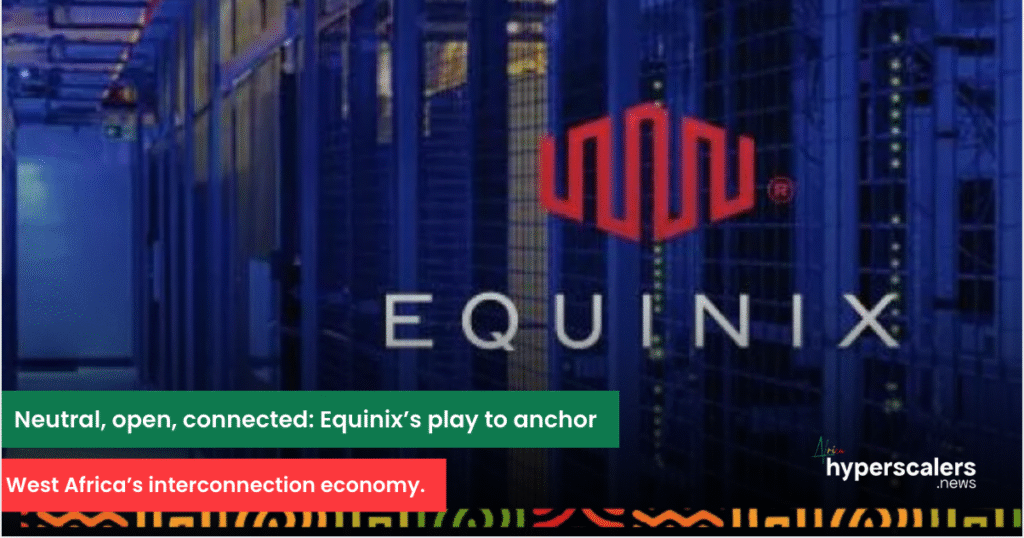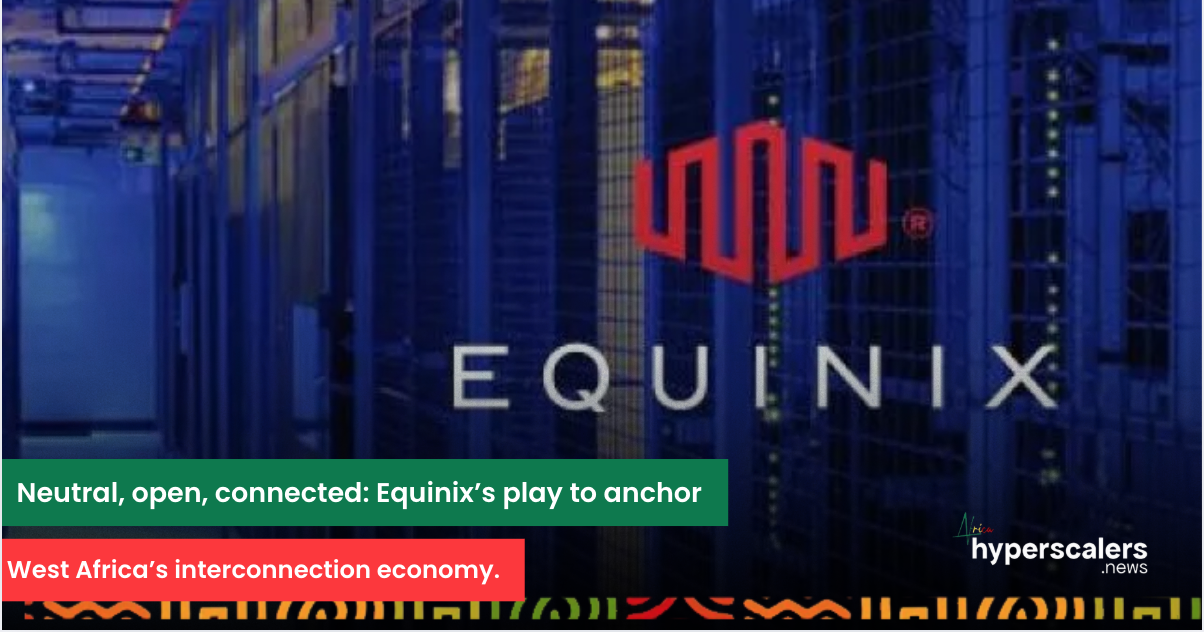In a dusty office in Cocody, Abidjan, Lacina Achi refreshes his browser, watching the dashboard of his new e-learning platform come alive. For years, delays and outages were routine, each click routed thousands of miles to Europe before returning to the classroom next door. But today, as local interconnection improves, his students log in within seconds, their lectures streaming without buffering. “It feels like the internet is finally here,” he says, smiling. “Not somewhere else.”
Africa’s internet has long been a paradox: its mobile penetration outpaces global averages, yet it has some of the slowest speeds and highest data costs in the world. Nearly 70% of the continent’s internet traffic exits Africa before returning, routed through exchange points in Europe or the Middle East in a process known as “tromboning.” For context, every email you send to your colleague across the room goes outside the continent before it lands in his/her email. This silent detour has real consequences, from latency, financial, and connectivity perspectives: students experiencing a lag in virtual classes, fintech apps timing out mid-transaction, and local entrepreneurs unable to scale.
Few know these detours better than Mohammed Rudman, CEO of Nigeria’s Internet Exchange Point (IXPN). “Fifteen years ago, about 1% of internet traffic was localized,” he recalls, during his keynote, “Road to 1TB” at the Peers Connect event by Equinix.
Even today, Africa’s fragmented infrastructure and reliance on distant hubs translate into latency penalties, bandwidth costs that bleed national economies, and geopolitical risks as sensitive data traverses multiple jurisdictions. The African Peering and Interconnection Forum (AfPIF) has set a bold “50/50 Vision” to keep at least half of internet traffic local in key economies by 2025. But progress remains slow; across the continent, less than 30% of traffic is kept local.
For Equinix, the world’s largest digital infrastructure company, this inefficiency is not a market gap; it’s an existential opportunity. Its acquisition of MainOne and MDXi facilities in Nigeria, Ghana, and Cote d’Ivoire marks a strategic bet: that carrier neutrality, openness, and dense interconnection ecosystems can rewire Africa’s digital economy from the ground up.
“Africa needs to retain more local traffic to drive value,” says Wole Abu, Managing Director, Equinix West Africa. “Imagine the performance gains and cost reductions if our leading internet players exchanged traffic locally instead of routing abroad.”

He cites a simple equation: localizing traffic can reduce latency by up to 160%, an order-of-magnitude difference that transforms user experiences from fintech to health apps to AI-enabled services. It also slashes international transit costs, often the largest operational expense for Internet Service Providers and Mobile Network Operators.
But Equinix’s strategy is not only technical. It is also strategic. Carrier neutrality contrasts with telco-owned data centers, where proprietary control can limit openness and throttle competition. Oluwasayo Oshadami, Director at Equinix, puts it bluntly: “Are we carrier neutral? Absolutely. That’s a capital-letter YES. Carrier neutrality means equal access, non-discriminatory pricing, and transparent policies for everyone, whether you’re Provider A or B, hyperscaler or local ISP.”
Some critics conflate neutrality with the absence of interconnection services, but Oshadami disagrees. “A carrier-neutral facility ensures interconnections are open to all, not restricted to preferred vendors. What is a data center without connectivity? Just a warehouse for servers.”
This openness powers Equinix Fabric, a digital marketplace for interconnection. Oshadami says, “Like a marketplace that connects countless merchants to buyers worldwide, Equinix Fabric does the same for digital infrastructure. From your Equinix metro, you can connect HQs in London, Lagos, Johannesburg, or New York.”
The scale is staggering. Fabric aggregates thousands of customers, partners, and top-tier networking, storage, compute, and application service providers worldwide. It enables network edge services, virtual routers, firewalls, and brings-your-own-license support for software appliances – creating seamless enterprise-grade connectivity.
But while Equinix pitches a narrative of neutrality and openness, some analysts warn of new dependencies. “There is a geopolitical dimension to cloud and interconnection infrastructure,” notes a Lagos-based ICT policy advisor who pleaded anonymity. “As Africa localizes traffic, who controls the hubs? Who sets the rules of interconnection? Sovereignty must not end at data residency. It extends to interconnection policy.”
Indeed, Nigeria’s regulatory landscape remains fragmented. Energy insecurity raises operational risks; land access for data center expansion remains mired in bureaucratic bottlenecks. While Equinix’s entry brings global credibility, Africa’s digital future will depend equally on public-sector reforms. Without stable power, streamlined right-of-way regulations, and harmonized data protection laws, the promise of neutrality risks becoming another imported ideal colliding with local realities.
Still, Equinix states that its model catalyzes ecosystems rather than controls them. Brenden Rawle, Equinix Senior Director, underscores that the company’s vision has always been bigger than just data centers. “If you had walked into our first facility in 1998, you’d have seen racks of networking gear; optical systems, routers, switches. Real value isn’t in concrete and cooling. It’s in the communities they enable.”
For African fintech founders like Lacina, this enabling is no abstraction. Faster, cheaper interconnection unlocks AI-powered credit scoring, seamless payments, real-time analytics, and cross-border expansions. Hyperscalers can establish in-country zones, bringing enterprise-grade compute closer to users, reducing latency, and enabling compliance with local data laws. Content providers can cache locally, eliminating buffering and lowering costs, while governments gain the power to store data within borders without losing global reach. With hyperscalers integrated into local IXPs and data centers, Africa’s internet shifts from a conduit for offshore traffic to an engine for domestic value creation, fueling innovation, sovereignty, and economic scale.
Yet, as with all revolutions, there are losers. Legacy telcos risk disintermediation if they fail to adapt to open interconnection models. Monopolistic bandwidth practices will be challenged. And national policies must confront questions of environmental sustainability as data center energy footprints grow.
In the end, interconnection is a human act. “Every morning greeting, every marketplace handshake, every video call is a form of connection. The internet translates this timeless desire into digital reality,” Oshadami says. As Rawles reflects, “Imagine a world without it. No information, no communication, no business. Every technological evolution enhances how we connect.”
Equinix’s strategic play is that Africa is ready for its next evolution: a shift from fragmented, externally routed traffic to a continent anchored in neutral, open, carrier-class hubs that keep its data, and its destiny, at home. But infrastructure alone is not enough. For this investment to pay off, African policymakers must match it with vision: reliable power grids, land reforms, data protection harmonisation, and an unrelenting commitment to inclusive digital growth.
As the sun sets behind Lagos’ rising skyline, a quiet hum continues in Equinix’s data halls – the sound of connections once routed across oceans, now finding their way home. With Equinix Fabric already live in Johannesburg and set to launch in Lagos by 2026, Africa is no longer waiting to connect through others. It is building the infrastructure to connect through itself – neutral, open, and finally, connected.
Ready to dive deeper into the hyperscale revolution impacting Africa?
READ MORE HERE: www.africa.hyperscalers.newsContact Us:
Email: projects@hyperscalers.news
Phone: +2348109003350
Follow us on Social Media: Instagram, Facebook, LinkedIn, x





